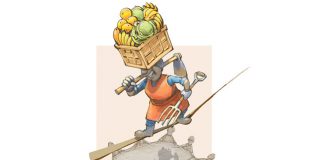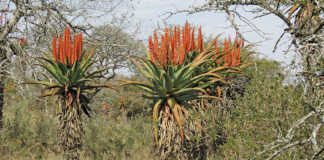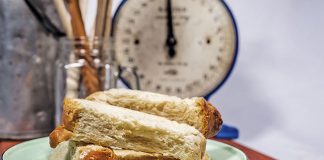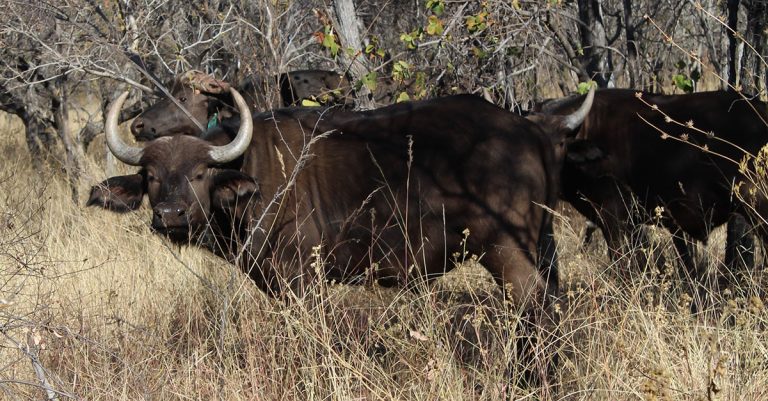
Photo: Lindi Botha
The game industry made headlines in the mid-2010s as prices for animals skyrocketed off the back of colour variants like the black impala and golden wildebeest. Buffalo prices followed suit, and paying over R100 million for an animal was not uncommon in 2016.
However, as many predicted, the bubble inevitably burst, leaving countless long-time game farmers in the pinch. This situation was exacerbated by the ensuing drought, followed by COVID-19, which led to the shutting down of hunting activities for most of 2020. Suffice to say, game farmers have been stretched to their limits.
Nevertheless, for the Sullivan family, owners of Bongela Private Game Lodge in Vaalwater, Limpopo, wildlife ranching still holds much promise. The lodge derives 70% of its income from hunting activities, and also offers bush getaways for families.
What started as a weekend destination for the Sullivans in 2012 soon morphed into a business, as the family realised the value in sharing the property. Timing, however, was not on their side, and they have had to weather the sector’s storms over the years.
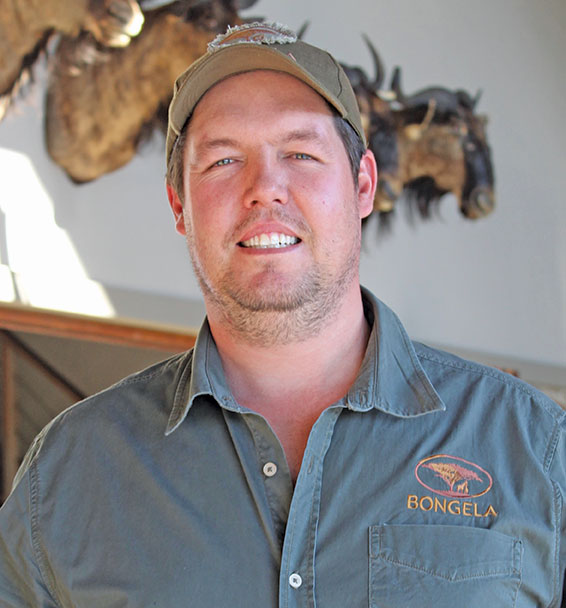
“We entered the industry just too late in the boom period to actually benefit [from it],” explains Jaco Sullivan, manager of Bongela.
“We bought animals when prices were high, and then the market fell. We definitely suffered a financial loss, but fortunately we bought conservatively, so we could manage the impact.
“Others saw the climbing prices as a way to make a quick buck. We saw first-hand how people borrowed heavily, bought land and pushed a few million rands’ worth of animals onto that piece of land, thinking they’d keep them for a while and make a killing at an auction later. That never happened, and they were crippled with debt.
“Since the price of the hunting animals didn’t fall, but rather just [that of] the colour variations for breeding purposes, we could cushion the blow to the business. When the [price] bubble burst, we didn’t lose sight of our vision and the passion we have for wildlife. Today, we are still positive about the industry and can see there is a growing demand for hunting.”
Breeding value
Sullivan notes that the farm’s breeding programme has also assisted the business,
as buying in animals for hunting purposes does not make financial sense.
“We also aim to improve the genetics so we can offer better animals for hunters and auctions.”
The breeding programme includes sable and roan antelope, Livingstone eland, nyala, bushbuck and buffalo. Sullivan selects to remove the weaker genetics, and these animals are either sold on auction or used for hunting. Those with superior genetics are used to breed further. Characteristics they select for include horn growth and length, structural correctness, inter-calving period, masculine males and feminine females.
Sullivan explains that these animals were chosen for their popularity among hunters and the economic value they hold.
“They are sought-after animals to hunt, by both local and international hunters. The value of buffalo will always remain high as it’s just one of those animals everyone wants to hunt.
“But we have seen in the past few years that even kudu and waterbuck have become popular. Kudu prices, in particular, are increasing because the supply does not meet the demand. It takes a long time for a kudu bull to reach maturity, and for a long time farmers didn’t breed kudu because they weren’t perceived as valuable. Now there is a shortage of kudu, which is typically what happens when an animal doesn’t have high value. We are therefore keeping all our female animals at this stage and only allowing the bulls to be hunted so that we can build up the kudu herd.”
As far as colour variants go, Sullivan believes there is value in breeding these animals as there is still a demand for them. “We don’t really focus on breeding colour variants, but if they are there, they’re in demand; but not at the exorbitant prices they once fetched,” he adds.
Commenting on the shift to online auctions with the advent of COVID- 19, Sullivan says that although auctions initially took a knock, buyers and sellers quickly realised the convenience and economics of going online.
“However, I think prices have taken a dip, because there’s no bidding rivalry like you get when everyone is in one room.”
Growing demand
The dynamics in the hunting industry have also changed over the past few years, but Sullivan is certain of one thing: demand is growing.
“Hunting was always a ‘male activity’, something a father and son did together. But over the past 10 years, it has gradually shifted to become a family activity or one for corporate team building. Mothers and daughters now hunt, too. And, through the corporate groups, many more people are being exposed to the industry who might never have seen a live impala before. Hunting is now seen as a great outdoor activity.”
With these shifts has come a change in the way the hunting experience is offered, and Sullivan notes the importance of facilities that cater to a wider audience. This includes comfortable chalets, swimming pools with views, and even spa treatments.
Since his market is mainly locally driven, the restrictions on international travel haven’t affected the business too severely. “Hunting is still a luxury [activity] and it isn’t a cheap one.
However, it isn’t unaffordable for South Africans. We have foreign hunters, but we aren’t dependent on them, as our aim has always been to cater to the local market. The international market is difficult to enter and we grow in this segment every year, but local corporate groups are still our biggest clients, and the market is healthy,” he explains.
“I’ve also seen that South Africans are becoming more interested in hunting sable [antelope]; previously, it was only foreigners [who were interested]. But, prices have stabilised and [sable antelope] have become more favourable.”
Sullivan notes that word of mouth has been their biggest marketing tool. “We do advertise on social media here and there, but every year we get new groups that come as a result of hearing good stories from others.”
Challenges in the industry
With prices stabilising and the drought having largely broken, the future of the hunting industry in South Africa could seem favourable, were it not for more looming challenges.
The argument against hunting, mostly from a European audience, and the lack of consideration given for the role it plays in conservation, are hurdles that have been plaguing the sector for some time.
“It is frustrating that someone abroad with a loud voice can give their opinions about an industry they have nothing to do with, and which has no bearing on what happens in reality on a farm in South Africa. The world is up in arms about lion hunting; I think we’ll be making a mistake if we stop hunting lions, because those who are offering hunts, are breeding them. If the hunting stops, the breeding stops, and the natural lion population will eventually be eradicated as their habitat is also destroyed. So, for the sake of encouraging conservation, we need hunting,” asserts Sullivan.
He says he is nervous that legislation and a misunderstanding of the industry will mean that hunting will be stopped entirely.
“If that happens, it will decimate the wildlife industry, as there’ll be no reason for any farmer to breed and conserve wildlife. The farms will be sold and the veld will go backwards because there’ll be no reason for anyone to own a farm and look after the land either. The only way we can have a healthy wildlife population and robust ecosystem is if there are people investing in it, and that only comes with economic incentive which, in this case, is hunting.”
Despite this, industry sentiment has remained positive, and Sullivan says this is because people, for the most part, understand conservation, and hunt with respect shown to the animals.
“At the end of the day, the animals are flourishing, and people in the surrounding areas have work as the lodges that offer hunting support a far bigger economic community. Any legislation that hinders the hunting industry will impact our business, rural communities, and the country’s economy.”
Sound investment
Maintaining resilience has been a family effort for Bongela. Sullivan credits his grandfather’s financial sense and hard-working nature as the reasons for their success.
“My grandfather played a big role in setting the tone for the business. Both he and my father are conservative in their investments, because money never came easy when they were young. We believe there is no such thing as a quick buck, and simply pushing all of your funds into something in the hope of reaping a windfall is never part of the strategy.
“Likewise, we’re not going to invest in anything if it is not going to make money. If we do invest, we look at the risks and opportunities, and then go in for the long game. We might not have anticipated COVID-19, but we could weather the storm because we keep our overheads low.
“My grandfather taught us to work for what we want and never give up. You can’t sit back and wait for something to fall into your lap. You must also stay on your knees; you can’t do anything without God.”
Email Jaco Sullivan at [email protected].









